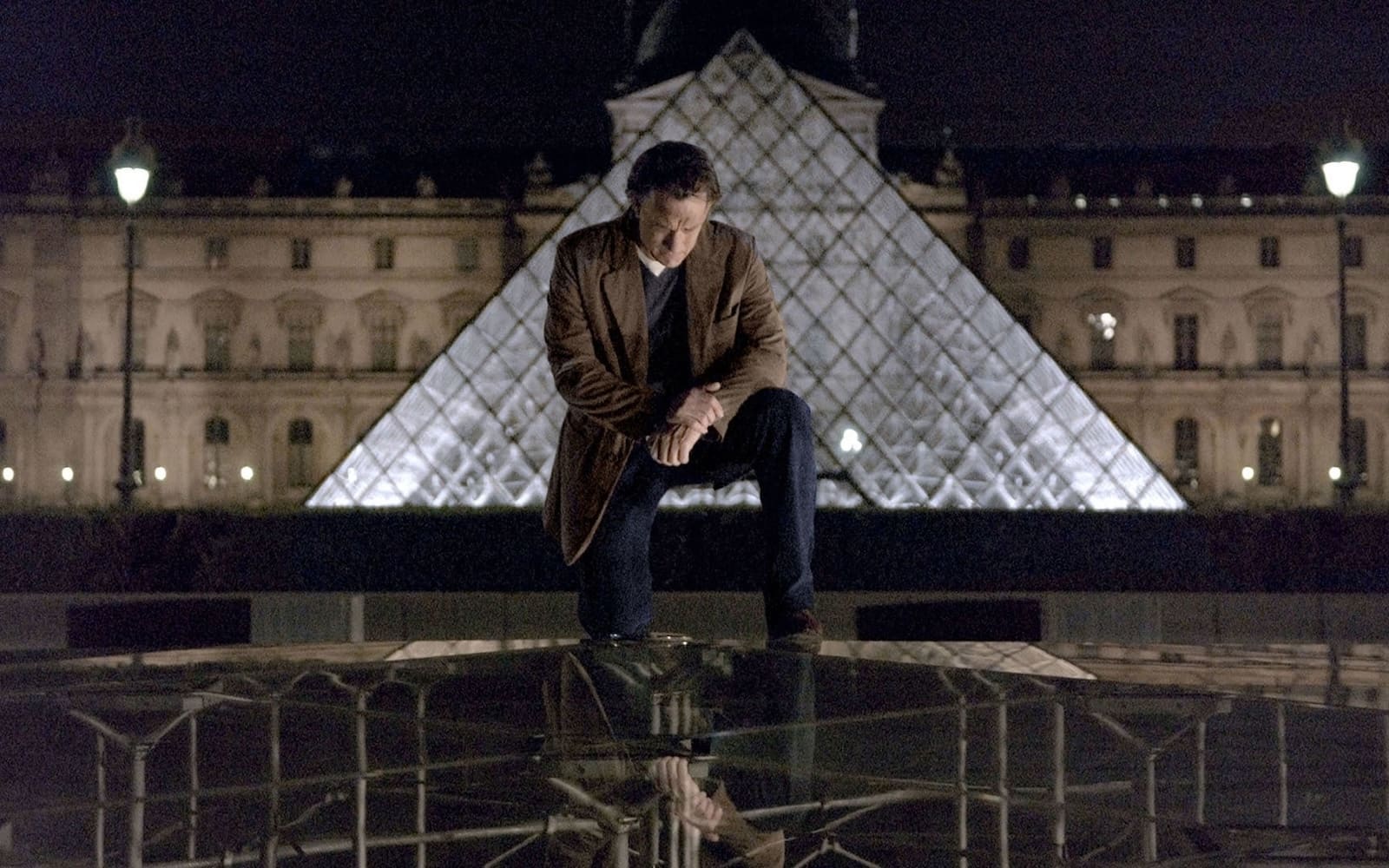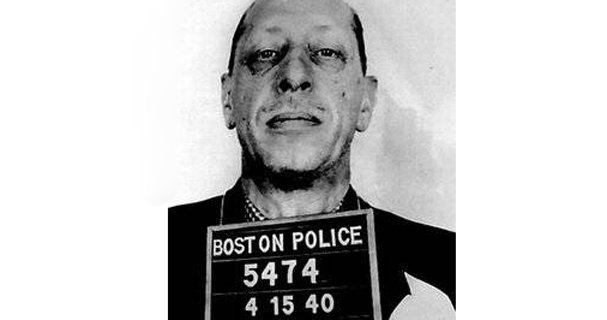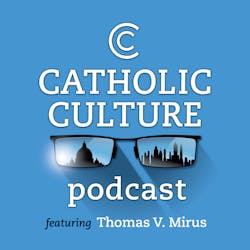Potboiler movies like director Ron Howard’s trilogy, The Da Vinci Code (2006), Angels and Demons (2009), and Inferno (2016), invite us to just accept outlandish fictions with a promise of thrills to return. Pleasure builds as soon as we purchase into their imagined world. These three motion pictures are underrated, unappreciated, and mired in theological debate. However such disputes appear to overlook the purpose. Motion pictures could improve our perception, however they don’t outline it. Religion is a present of the spirit, not of Hollywood.
Langdon struggles to be honorable in an endlessly difficult world. These movies are the story of his journey. However they aren’t theology.
The official Vatican newspaper L’Osservatore Romano agrees. In its assessment of Angels and Demons, the periodical reminds us that the movie is merely “innocent leisure that has little to do with the genius and thriller of Christianity.” An editorial in the identical challenge means that slightly than battle fictional movies like The Da Vinci Code, which to nobody’s shock was banned in Vatican Metropolis, the church could take a distinct method: “It might most likely be an exaggeration to contemplate the books of Dan Brown an alarm bell however possibly they need to be a stimulus to rethink and refresh the way in which the church makes use of the media to elucidate its positions on at the moment’s burning points.”
The movies make this similar level. In Angels and Demons, they offer the most effective strains about religion to actors who ship them with resonance and mature assurance. “Faith is flawed,” Armin Mueller-Stahl’s character Cardinal Strauss confesses to the lead character, Robert Langdon (Tom Hanks). “However solely as a result of man is flawed. All males, together with this one.”
Neither is Stellan Skarsgård’s Commander Richter blind to the failings of humanity. However he trusts within the good achieved by the establishment he serves: “My church comforts the sick and dying. My church feeds the hungry. What does your church do, Mr. Langdon? That’s proper, you don’t have one.”
Langdon’s perception is difficult. He admits that he has no clue what’s divine, what’s human, or neither, or each. Close to the tip of The Da Vinci Code, he relates that as a little one he fell right into a effectively:
And what I did, I prayed. I prayed to Jesus to maintain me alive so I might see my mother and father once more, so I might go to highschool once more, so I might play with my canine. Generally I’m wondering if I wasn’t alone down there. Why does it need to be human or divine? Perhaps human is divine. Why couldn’t Jesus have been a father and nonetheless be able to all these miracles?
Langdon didn’t come out of that gap a convert. Moderately, he’s looking, as all of us are looking, significantly when trapped in our personal wells of despair. In Angels and Demons, Camerlengo Patrick McKenna asks Langdon if he believes in God. He replies with admirable candor, braveness, and tact:
LANGDON
I’m an instructional. My thoughts tells me I’ll by no means perceive God.MCKENNA
And your coronary heart?LANGDON
Tells me I’m not meant to. Religion is a present that I’ve but to obtain.
Langdon is flawed, sure, however curious, humble, damaged, looking, clever, educated, and open to the concept there’s a lot we could by no means perceive on this life. He struggles to be honorable in an endlessly difficult world. These movies are the story of his journey. However they aren’t theology.
Neither is the e book.
Detractors typically level out that the epigraph to Dan Brown’s novel The Da Vinci Code lists some slightly doubtful data below the heading FACT. That is adopted with one other teaser: “All descriptions of paintings, structure, paperwork, and secret rituals on this novel are correct.”
However rewind a second.
Brown is utilizing an outdated storyteller’s ploy that shouldn’t be taken too critically. Keep in mind the e book’s full title—The Da Vinci Code: A Novel. Something after the phrase novel is truthful fictional recreation. Authors and filmmakers typically create “info” inside their invented worlds to maneuver the plot alongside, particularly in enigmatic epigraphs or title playing cards. Brown isn’t any exception.
“This e book isn’t anti-anything,” Brown says. He believes {that a} majority of his religious Christian readers perceive this. They benefit from the e book as leisure and, maybe, as a method to spark curiosity in essential matters of religion. “It’s a novel. I wrote this story in an effort to discover sure features of Christian historical past that curiosity me.”
As Tom Hanks quips about Brown’s books, “These are pleasant scavenger hunts which can be about as correct to historical past because the James Bond motion pictures are to espionage.”
Bart Ehrman (College of North Carolina at Chapel Hill) was requested by Oxford College Press to touch upon The Da Vinci Code. Ehrman, an agnostic, is one in every of our best New Testomony and Early Church students. “I do know that lots of people study in regards to the previous from works of fiction or from movie,” he says. “The flexibility of movie administrators and e book authors to have an effect on public sentiment and to shift public considering is neither an excellent factor nor a nasty one; it’s merely a actuality of the occasions.”
However Ehrman doesn’t hassle with vilifying Brown. As a substitute he demonstrates that the novel doesn’t bear important historic scrutiny. Nor ought to it. Ehrman concludes {that a} rousing thriller is the improper place to search for reality. Or, as Tom Hanks quips about Brown’s books, “These are pleasant scavenger hunts which can be about as correct to historical past because the James Bond motion pictures are to espionage.”
Honest sufficient. It’s not historical past. Let’s discuss in regards to the motion pictures.
The Da Vinci Code means that Christ’s bloodline continues in his residing inheritor. However it’s the villain Leigh Teabing (Ian McKellen) who persuasively presents this barely rabid argument. Audrey Tautou’s heroine Sophie Neveu is equally convincing as a French Nationwide Police cryptographer, reared on nice artwork, who inexplicably believes Teabing’s hogwash.
But it surely’s compelling cinema nonetheless. After a throw-away line about Leonardo da Vinci subscribing to what follows, Teabing trots out a pc presentation on The Final Supper. He treats the portray as if it’s photographic proof that Jesus was married to Mary Magdalene. (I don’t recall which gospel mentions Leonardo being current together with his iPhone.) However the sequence works as pure movie: all of the sudden a fifteenth-century mural appears to characterize precise occasions. It’s a number of enjoyable, and as we study later, a intelligent little bit of sophistry by Teabing. That is why our hero Langdon shakes his head all through the scene.
It’s all smoke and mirrors, after all. The Da Vinci Code doesn’t middle on whether or not Christ’s bloodline exists on earth at the moment. That may make for a uninteresting film. As a substitute, the query Was Jesus Married? is merely one other variation on a plot gadget as outdated as movie itself: the hero’s quest to rescue the damsel in misery.
Teabing additionally asserts that Jesus was merely a person. Langdon admits he has no clue. The hero’s misgivings are sometimes missed when detractors get labored up over the Was-Jesus-Married debate. Regardless of the dangerous man’s claims, this challenge is hardly a menace to any church, as L’Osservatore Romano suggests, and as a second’s thought reveals.
Suppose Jesus is the incarnate God. I imagine he’s. Properly, as God made painfully clear to Job, he does as he pleases and we’re fools to suppose we will grasp why, how, and even the character of his intent. If he chooses to marry whereas in human type, effectively, God is God. We’re not. And what does it matter?
Okay, okay, possibly it issues due to intercourse. I think Carl Jung and Sigmund Freud would have a subject day with individuals’s robust emotional reactions as to if or not Jesus had congress with a lady. I’m saddened and a tad bemused that there isn’t an identical backlash to the thought that Jesus ate, drank, most likely wanted restroom breaks, received offended, upset, and as we all know, bled and died.
Our charged reactions to discussions of Christ’s celibacy could say extra about us than they do in regards to the gospel writers’ silence on the topic.
Ah, however marital relations are much more intimate than breaking bread and downing wine with the boys. Even when possibly Matthew and Peter received just a little sloshed and began toasting one another with the Aramaic equal of “I like you, man.” We’ve got it on good authority that Jesus dearly loves his disciples. This doesn’t hassle us, but our reactions can generally be vociferous, even zealous, on the mere suggestion that the incarnate God may need chosen the fun and sorrows of honorable marriage.
For one factor, Jesus tells us he’s already married to the church. Augustine calls this indissoluble bond a sacramentum, “wedded to so nice a husband by a religious marriage and a divine love.” This holy symbolism is mirrored in earthly vows of conjugal unity and fealty, observes revered theologian Pierre Pourrat. And marriage goes each methods. We want look no additional than the Ebook of Hosea for an instance of the divine ache brought on by disloyalty. In his influential quantity Prophecy in Historic Israel, Johannes Lindblom provides, “Often, in bridal symbolism, there’s point out of Israel’s love to her God.”
If Jesus insists on the constancy of his church, might he be an excellent husband and marry an earthly spouse?
Within the twenty-first century we would say no, however God selected a particular time and place for his incarnation. Taking one other bride was socially and legally acceptable, however not as widespread as we would suppose. “Though practices diversified at completely different intervals in Israel’s historical past, monogamy was much more widespread than polygamy,” says theologian Grace Emmerson (College of Birmingham). She provides that political and familial alliances benefitted from a number of wives, although the customized was normally restricted to those that might afford it.
So the query about Christ’s marriage isn’t might he, however would he?
The query appears to be one in every of propriety. Philosophers Eric Yang (Santa Clara College) and Stephen Davis (Claremont McKenna School) wrestle with this of their paper, “Marriage, Replica, and the Incarnation: What Might Jesus Do?” Whereas the consensus amongst students is that Jesus didn’t wed, Yang and Davis ask whether it is morally permissible for an incarnate God to take action. Sure, they conclude, it could have been ethically becoming, however appears extremely unlikely given the time and site of the incarnation. “Whereas there are some causes that favor an incarnate God getting married, having kids, or participating in sexual exercise,” they recommend, “it will have been total unfitting for Christ to have achieved so.”
To be clear, I’m not suggesting that Jesus was married to an earthly girl. Like Langdon, I don’t know. And like Job, I dare not presume to know the thoughts of God. Our charged reactions to discussions of Christ’s celibacy could say extra about us than they do in regards to the gospel writers’ silence on the topic. Such debates distract us from encountering God’s love in our lives at the moment. Our hero is aware of this. And that’s why I get pleasure from these motion pictures.
The movies are about hope, perception, and overcoming the frailties (and admitted evils) of humanity in our seek for the divine. Langdon isn’t a dry tutorial pontificating on the ills of the church. He’s a fellow pilgrim, wandering, questioning, cynical but sanguine. Within the ultimate strains of Angels and Demons, Cardinal Strauss thanks God for sending our hero to guard the church.
LANGDON
I don’t imagine he despatched me, Father.STRAUSS
Oh, my son. In fact he did.
But even pilgrims could sometimes discover their method. The denouement of The Da Vinci Code was filmed on July 9 2005, a date that has particular that means to star Tom Hanks. “It was my Fortieth-something birthday,” he remembers. “We have been taking pictures within the Louvre at night time. . . . Who will get to have that have?” The scene is likely one of the most memorable and essential of the movie.
Langdon runs by means of Paris alongside cobbled streets to the stirring music of Hans Zimmer’s “Chevaliers de Sangreal” (Knights of the Holy Grail). Eventually the clues have come collectively; he has discovered the place Mary Magdalene’s sarcophagus lies beneath the Louvre. But Langdon doesn’t all of the sudden imagine in a legendary bloodline. No, his response echoes what many people would possibly really feel. Right here rests a lady, some say a saint, to be honored with awe and humility. Kneeling like a knight of outdated, Langdon does simply that.



